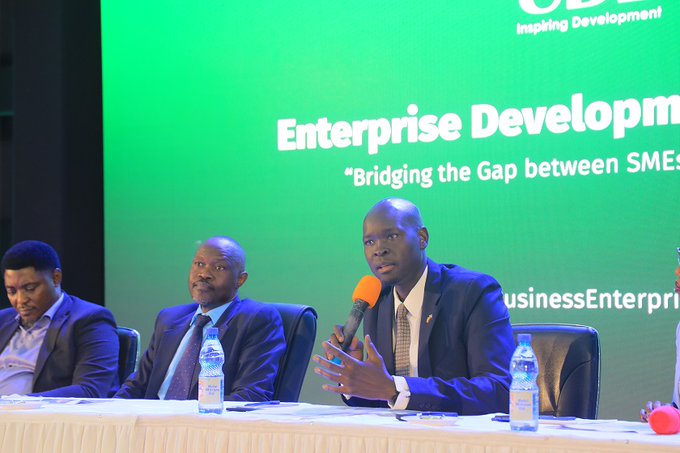Uganda Development Bank (UDB), the country’s Development Finance Institution, has launched the ‘Enterprise Development Program’ aimed at preparing entrepreneurs for financing through enhanced business practices.
According to Mr. Sam Edem Maitum, the Director Credit at UDB and Acting Managing Director, the Enterprise Development Program will be a series of trainings under the Bank’s Business Accelerator for Successful Entrepreneurship Program, hinged on the basis to build business elasticity and resilience, and to walk the entrepreneurship journey in supporting business owners to appreciate why they should operate their businesses professionally so as guarantee their long-term profitability and sustainability.
“Access to finance remains a major challenge for businesses especially Small and Medium Enterprises in Uganda because many are not formalised and structured. Some of the other challenges include inadequacies in management, governance, financial management and record keeping, business planning, statutory compliance, tax compliance and standards,” he said during the launch at Hotel Africana Kampala.
“In response to these challenges, UDB has organised the Enterprise Development Program to bridge the gap between enterprises especially SMEs, and financing. Together with other government partners, we are making every effort to ease and enable a seamless credit application process for entrepreneurs.”
The training sessions will be held in partnership with Uganda Revenue Authority (URA) – who will ensure that tax compliance is aligned end-to-end, Uganda Registration Services Bureau (URSB) for business registrations, Uganda National Bureau of Standards for quality certification and the Ministry of Trade and Industry for alignment to the government agenda.
The training is scheduled to hold nationwide starting with the Central Region where the Bank is expected to train over 365 entrepreneurs with consequent trainings in the Northern region where 279 entrepreneurs shall be trained, Eastern region – 273 and over 25o trainees in the Western region respectively.
Last year, the Bank announced a call for applications inviting enterprises interested in business advisory support and a total of 1,064 applications were received confirming a high appetite for improvement among the business community in Uganda.
“These trainings will be conducted in a phased approach. Our target is to get the enterprises to a level where they can effortlessly access financing and resultantly grow their businesses, create jobs, pay taxes, increase output value and become foreign exchange earners thus accelerating Uganda’s socio-economic development,” Mr. Maitum concluded.
According to a recent report by Economic Policy Research Centre, 8.5 million Ugandans are employed by Micro, Small, and Medium Enterprises (MSMEs). 80 percent of these SMEs work in manufacturing and 90 percent of them contribute to the private sector, however the sad reality is that roughly 70 percent of MSME’s fail before their second birthday.









